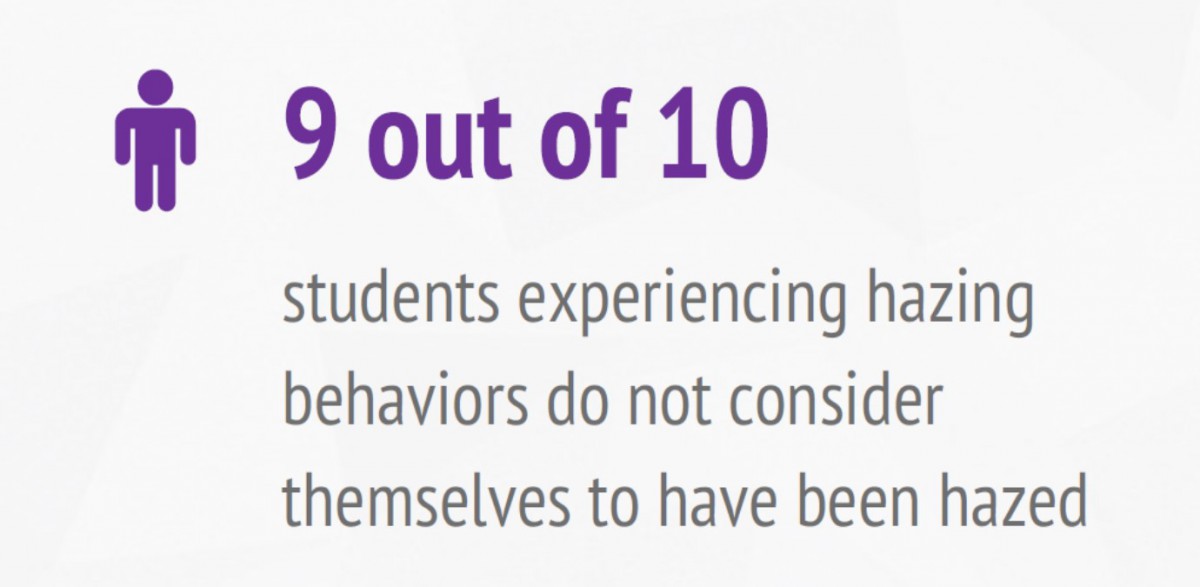Lehigh University definition of hazing:
"Hazing is any action taken or situation created, whether on or off campus, to produce mental or physical discomfort, embarrassment, harassment, or ridicule. Hazing includes but is not limited to any brutality of a physical nature, such as paddling, whipping, beating, branding, forced calisthenics, exposure to the elements, forced consumption of any food, liquor, drug or other substance, or any other forced physical activity that would subject the individual to physical harm or mental stress, such as sleep deprivation, forced exclusion from social contact, forced conduct which could result in extreme embarrassment, or any other forced activity which would adversely affect the mental health or dignity of the individual. Among prohibited activities are forced or coerced activities which create excessive fatigue; cause physical and psychological shocks; involve kidnapping; involve morally questionable quests, treasure hunts, scavenger hunts, or any other such activities; involve publicly wearing apparel that is conspicuous and not normally in good taste; cause students to engage in public stunts and buffoonery, morally degrading or humiliating games and activities, or late night activities which interfere with scholastic activities. Also prohibited are any activities that are in violation of federal, state, or local laws, this Code of Conduct, or accepted standards of good taste or propriety. For purposes of this definition, any activity described in this paragraph upon which the admission into or affiliation with an organization is directly or indirectly conditioned shall be presumed to be “forced or coerced” activity, the willingness of an individual to participate in such activity notwithstanding."
SOURCE: Lehigh University Student Handbook
Statistic SnapshotsHazing Prevention & Education Assessment Insight 2012-2015 |  | Lehigh InfographicsHazing & Student Organizations
|
Types of Hazing
| TYPE | DEFINITION | EXAMPLES |
|---|---|---|
| Subtle | "Actions or activities that go against University or societal ideas of standards of conduct, behavior and good taste. An activity or attitude directed towards a ny new or active member which ridicules, humiliates or embarrasses intentionally or unintentionally." |
|
| Harassment | "Includes any action or activity that causes mental anguish or physical discomfort. These actions and activities usually cause confusion, frustration, or unnecessary stress." |
|
| Violent | "Includes activities that could cause physical or emotional harm." |
|
SOURCE: StopHazing.org
Harms of Hazing
Physical Trauma
Often it is the result of physical trauma that we first hear about hazing. This involves any incident where someone is physically injured or even so far as a death.
Psychological Trauma
Shame or self-blame are more difficult to identify or report. However, negative psychological effects are just as detrimental to a victim of hazing, as well as their families. Examples include depression, suicide, poor grades, withdrawal from activities and shame. These effects are long-lasting; they can persist into adulthood.
Previous Experiences/Hidden Harm
What we don't know about an individual has the potential to be the ultimate harm of hazing. "Baggage", or previous negative or stressful experiences, can increase an individual's susceptibility to serious repercussions if hazed. Examples of baggage can include, but are not limited to, depression or other mental health issues, military service in a war zone, having been the victim of sexual assault or physical/emotional abuse, a personal or family history of alcoholism, previous experience with hazing, and having suffered the loss of friends or family members.
SOURCE: HazingPrevention.org

